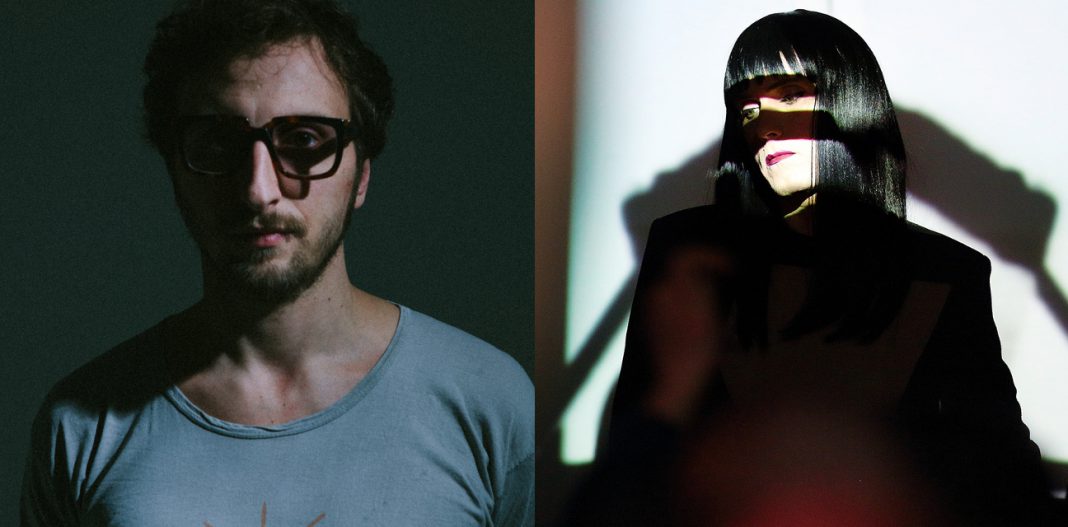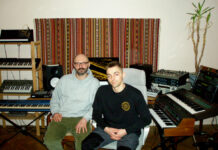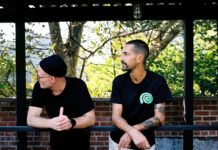For you, Lucy, Techno was just the last part of the puzzle which is your musical identity. With you Seth, it was the other way around: You took off as a Techno producer, but Techno could not contain your creative process for a long time, so it seems.
Seth: Something interesting happened to me in those early 2000s. After having made Techno for only four or five years, I felt this really strong pull away from it and I started branching out. I was experimenting a lot. That was necessary. But when I look back I see I was wandering around in the forest trying to find my way. (laughs) This can lead to interesting results, but at a certain point I was a bit frustrated. Now, when I look back, I see that it is frustrating to follow an artist who is branching out all over the place and you as the listener are not able get along. I was definitely drifting away from dance music, but it was my roots. So things still revolved around that. I ended up taking a bit of time away from dance music culture and didn’t necessarily expect to find myself back in it. It happened sort of organically. There is longer stories I could tell about it, but basically when I had the inspiration to do Techno music again, I decided I was going to do it differently. I was going to prevent myself from wondering about in the forest. (laughs) I was going to focus and to start with a certain set of ideas and a certain set of aesthetic boundaries and then really fine-tune it. This is a very different approach within the last five years with (Rrose), trying to remain cohesive.
How do you define a set of boundaries?
Seth: There is a danger that you are just repeating yourself over and over. But I think you can make some very interesting things happen. When you limit yourself you are forced to find something new in something that is familiar. With the tools we have, there are so many options that every day you could start something completely new using all new things. I find sometimes that moving a few knobs differently on the same two plugins I have been using for years comes up with a drastic and fascinatingly unusual effect. I am very careful about incorporating new things, but I am trying to discover new things in familiar things.
Stream: Lucy & Rrose – Chloroform
How did Rrose become your major artistic outlet?
Seth: I did not know we would be getting so in -depth with my history in this interview. (Lucy laughs.) I started making the music first before I had an idea what the project and what the identity would be. It started with a collaboration with Bob Ostertag. That project came to be the Motormouth Variations. I met Bob Ostertag in the Bay Area and we sort of developed a kind of rapport. He came from a place where he was pretty outspoken against electronic dance music, you could say. He had this critical idea that the new generation expects a computer timed, precise pulse since we have grown up with this technology where everything is digital and computer timed. He laments the loss of a more human type of music making. On some level I agree with him but on some other level I felt the need to defend electronic music and dance music as something that is just as human, I think. We got into these discussions. They lead me to sort of daring him to make music with a pulse and see if he can come up with something people would dance to. And he started trying to make techno music using a Buchla modular system just to see what would happen. Then he started sending me the material asking: ‘Is this techno music? Would people dance to this?’ I thought the material was really interesting and I said: ‘Well, not quite. But I could probably do something to it that would make it into dance music.’ So that became the release. And once I started working on the material, a new direction was forming for me. I need a new name and a new project. I also had the idea that it would be a Techno project and that it would be self-contained. All of the music I now do branches out of this project, which is something I was trying to avoid but it just happened.
How did you come up with the concept and the stage persona of Rrose?
Seth: As I came up with the name, I wasn’t thinking about it as an entire persona. That developed over time. It was partly this idea that I wanted to keep the identity and the project compartmentalized as one aspect of my life and separate it from the rest. That was the reason why I started developing it as an entire persona. Changing my appearance, using my identity, using gender, are all things that started in a kind of playful way. I took it more and more seriously as I did it more and more.
On your most recent albums the both of you move away comparatively far from your Techno productions. You, Seth, with Rrose Plays James Tenney – Having Never Written A Note For Percussion and you, Lucy, with Self Mythology. Why?
Seth: Having Never Written A Note For Percussion are two performances of a composition by James Tenney, an American composer who wrote it in 1971 on a postcard. I did the first performance of that piece really before the Rrose persona was developed and I had the recording. It was only a couple of years later that I decided it would be an Rrose Release. When I realized that this identity was going to be my central creative outlet I was going through a similar kind of crisis of what would happen when I get completely pigeonholed. I would have to make Techno all the time and would go completely crazy. (Lucy laughs.) I released it as an Rrose project partly because I wanted to perform it, but partly because I wanted to open the door for the project to go into other directions. When I leave Techno with this project I am still trying to keep something cohesive. There are a lot of parallels of what is going on in that album and the way I approach Techno music, even though its radically different music. I am very carefully opening doors allowing myself pathways into different directions. But I am at a certain point right now where I am very uneasy with my identity as a Techno producer, because I go through long periods of time where I just don’t want to hear any Techno, to the point where I am scared that I won’t be able to do it any more. (laughs) But I still come back to it, and I still find inspiration in it. But I have to make sure that there are these doors open to go into other directions. And there will be a point where I leave it all together. But it´s hard to say, it has been so many years, it’s part of my blood now to make Techno. You never know.
Lucy: I can relate a lot to what you are saying because for me the last album was probably the biggest example of moments where I get so oversaturated with actual Techno that I really needed to move away. But I still wanted to keep a certain sense of Techno much as Seth was talking about carefully opening doors. I normally talk about a sense of discipline meaning it’s still important for me that all projects under the Lucy name bear some kind of coherence. You say with the album I detach myself from Techno and yet it is still a form of Techno. Some of the tracks I still play at big time moments in clubs, but I don’t expect any other DJ to do that. Do you know what I mean? It is this kind of ping pong movement between a sense of Techno nostalgia and a sense of innovation. The whole album with the concerts with live instrumentalists and the voice were a needed refreshment. Now that the concert tour is over, I find myself sitting in my studio and happily producing what most people hear as more conventional Techno. But I find myself highly enriched with the sounds and the knowledge from the experience of the album. This kind of ping pong is something extremely important to me. Without that, I feel myself completely dried out. In the week you are in the studio, on the weekend you are exposed to Techno. For me it cannot be so self-referential. The work with Seth came at a moment when I really needed it. Sitting with Seth in the studio really gave me the ring that was missing in this chain between very different things.





